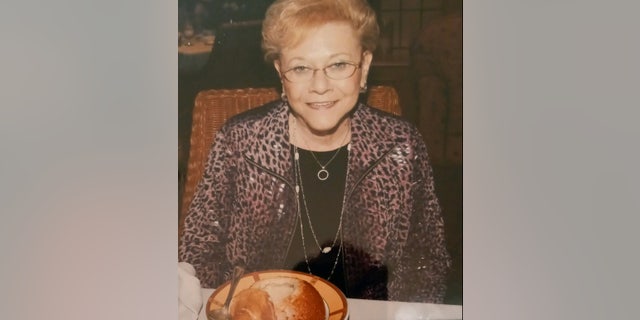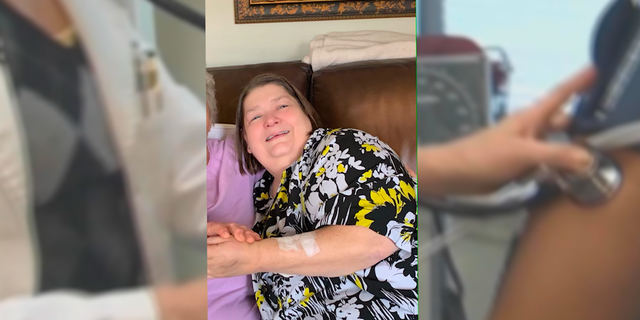ATLANTA – While hospitals are overcome with COVID-19 clients, property care employees are working to keep up with a surge in demand. A lot of households are ever more depending on household treatment employees to just take treatment of their susceptible spouse and children users amid the ongoing pandemic.
“Property care does every little thing for me that I can not do for myself,” Betty Anne, a 90-calendar year-previous who has been making use of property treatment for two many years, mentioned. “In the course of the pandemic, I sense safer due to the fact I’m home, alone, with just them.”

90-yr-previous Betty Anne in advance of she commenced getting household care.
(Courtesy of Betty Anne)
Eric Pritchard stated his spouse and children also selected house care for his aunt, who had a stroke and heart attack numerous a long time ago.
“After she experienced a stroke and a heart assault at the end of 2019, it was hard for her to maintain herself at property,” Pritchard stated.
Pritchard said during the pandemic, house treatment was the very best solution to maintain his aunt harmless.
HOW CAN I Stay clear of CORONAVIRUS VARIANTS?
“It’s been a Godsend. It would be almost impossible to acquire treatment of her with out a person in this article throughout the day,” Pritchard stated.
Throughout the nation, home treatment staff are seeing a spike in new people.
Jadawnya Bostock owns We Treatment Household Care in the Atlanta location. Her facility works to connect households with residence care employees.
“The moment COVID hit we begun choosing up a great deal of shoppers due to the fact a good deal of family associates are seeking to consider their families out of nursing properties, they’re wanting them to be house due to the fact now they cannot take a look at them thanks to COVID,” Bostock reported.

Eric Pritchard’s Aunt Judy gets property treatment on a day by day foundation.
(Courtesy of Eric Pritchard)
According to the National Association of House Treatment and Hospice there is a 125 % boost in need for household care employees.
William Dombi the president of NAHC, reported the demand from customers intensified in March and has been a entire drive ever due to the fact.
“It is a feasible and probably extra protective setting for treatment for people today that are striving to prevent the virus,” Dombi explained.
Even though many patients are vulnerable to the virus, Dombi claimed home treatment employees are at hazard also.
“By our estimations, there are tens of hundreds of actively infected COVID clients under the care of property treatment providers now. We have also found deaths.. we have had property treatment personnel die from COVID-19,” Dombi stated.
CORONAVIRUS VARIANT ‘CO-INFECTION’ Discovered Between 2 BRAZILIAN People: Researchers
Household treatment workers are undertaking quite a few factors to limit the spread of the coronavirus. On best of putting on masks and PPE, residence care groups are making positive workers are taking care of the same affected individual routinely to stay clear of contact with numerous men and women.
“It’s not terrifying at all… and I will notify you why… we have all of our PPE, we have our masks, we have our robes, and we make sure that if our caregivers go out of city, they have to quarantine for 14 times right before they can return back again to our elderly’s home,” Bostock said.
Whilst home treatment staff have been on the frontlines for other viruses, they say those do not review to COVID-19.
“This is thoroughly unparalleled. I suggest we have dealt with challenges of SARS and the fowl flu and these types of matters, but none manifest alone with the depth that we have seen here,” Dombi explained.
Click on Here FOR Entire CORONAVIRUS Coverage
The Pritchard relatives reported dwelling treatment staff sacrificing their have wellness to support their clients make them heroes.
“It can make items so considerably less difficult, primarily on the spouse and children of the individual to know that another person is getting treatment of them, to know that they are becoming fed, to know that they are finding a bath just about every day,” Pritchard said. “All those small items that as soon as you cannot do them for you, they grow to be valuable.”
